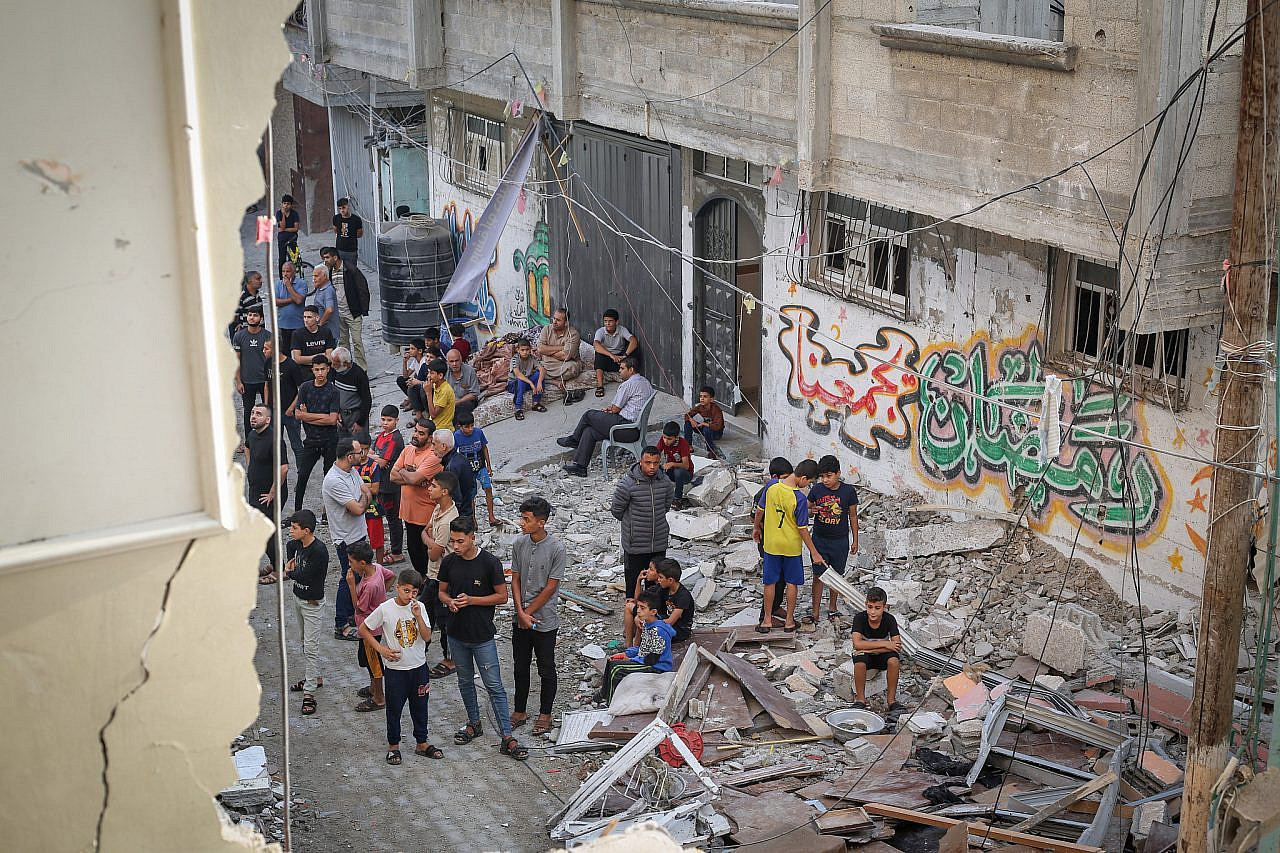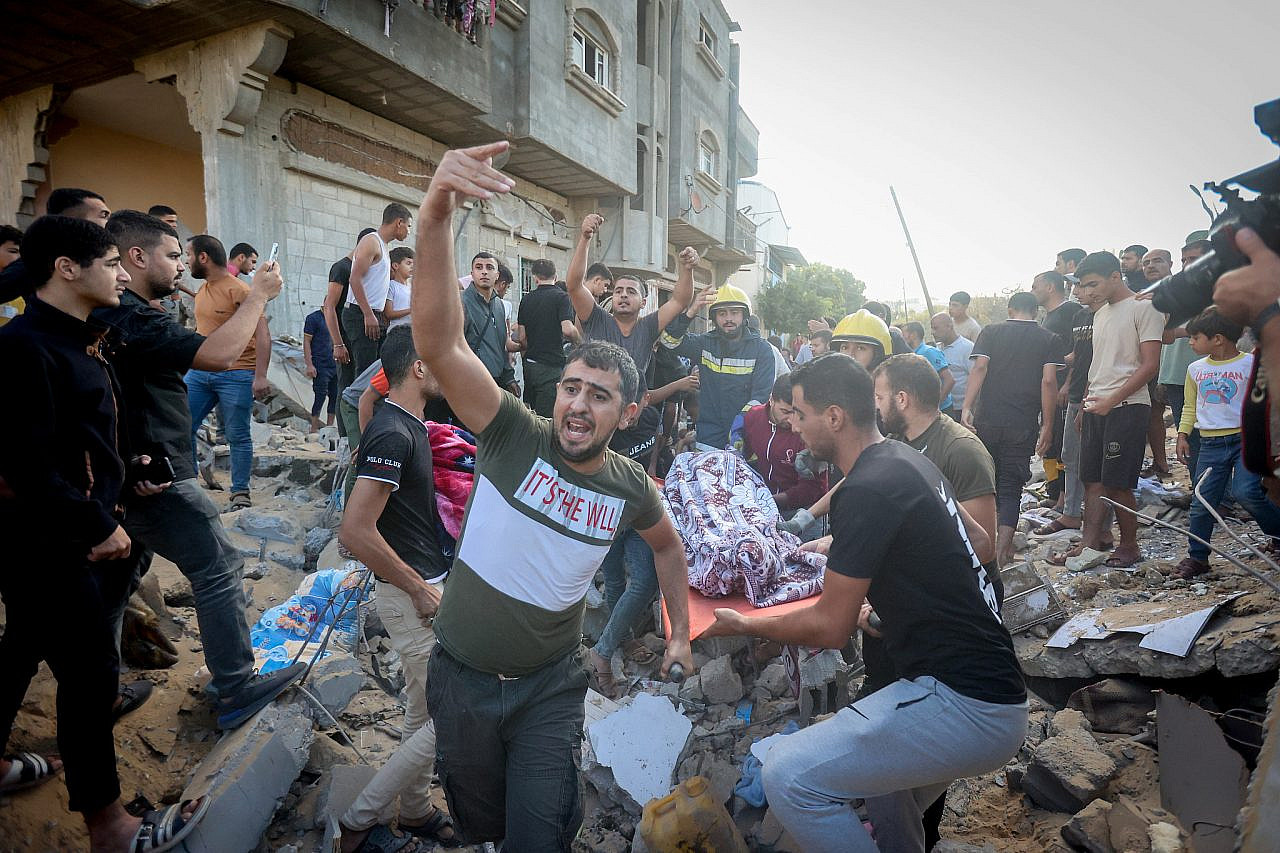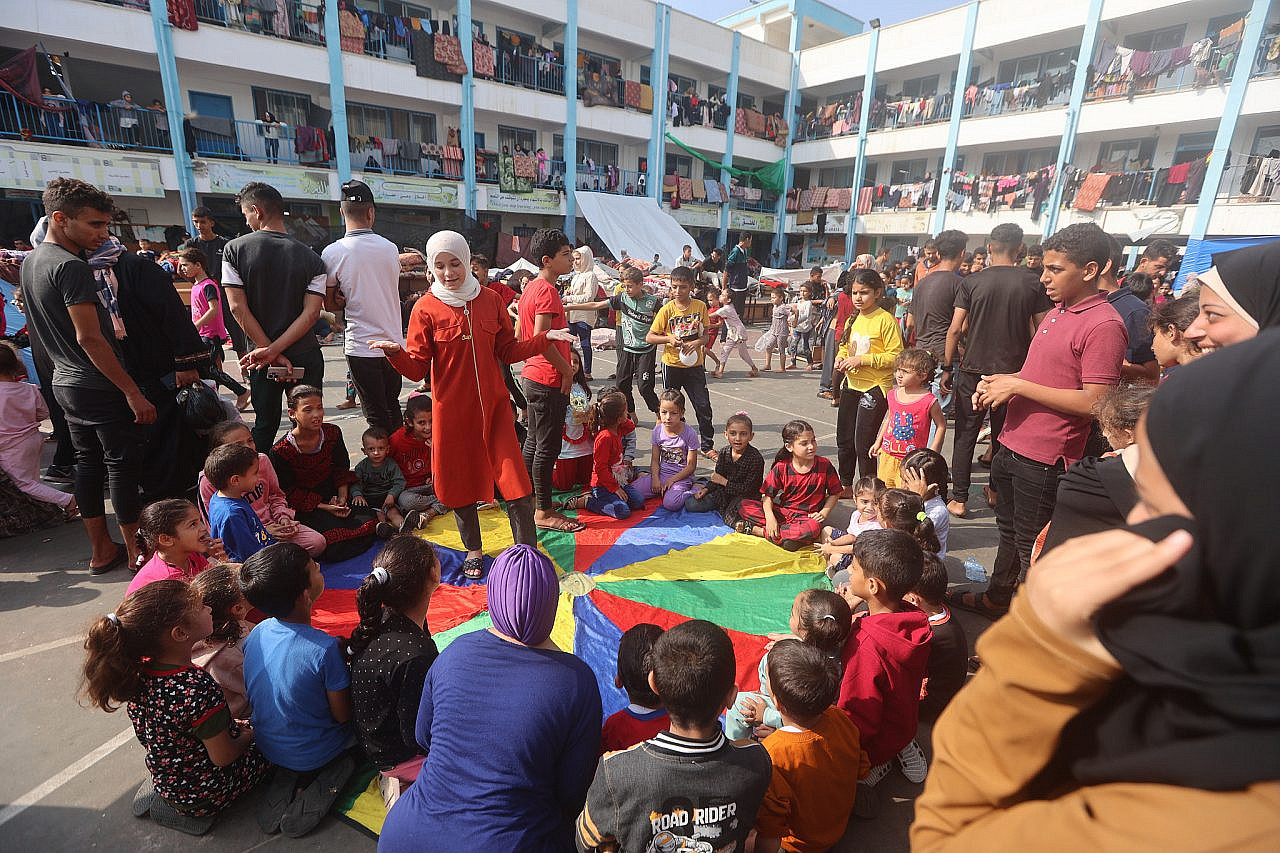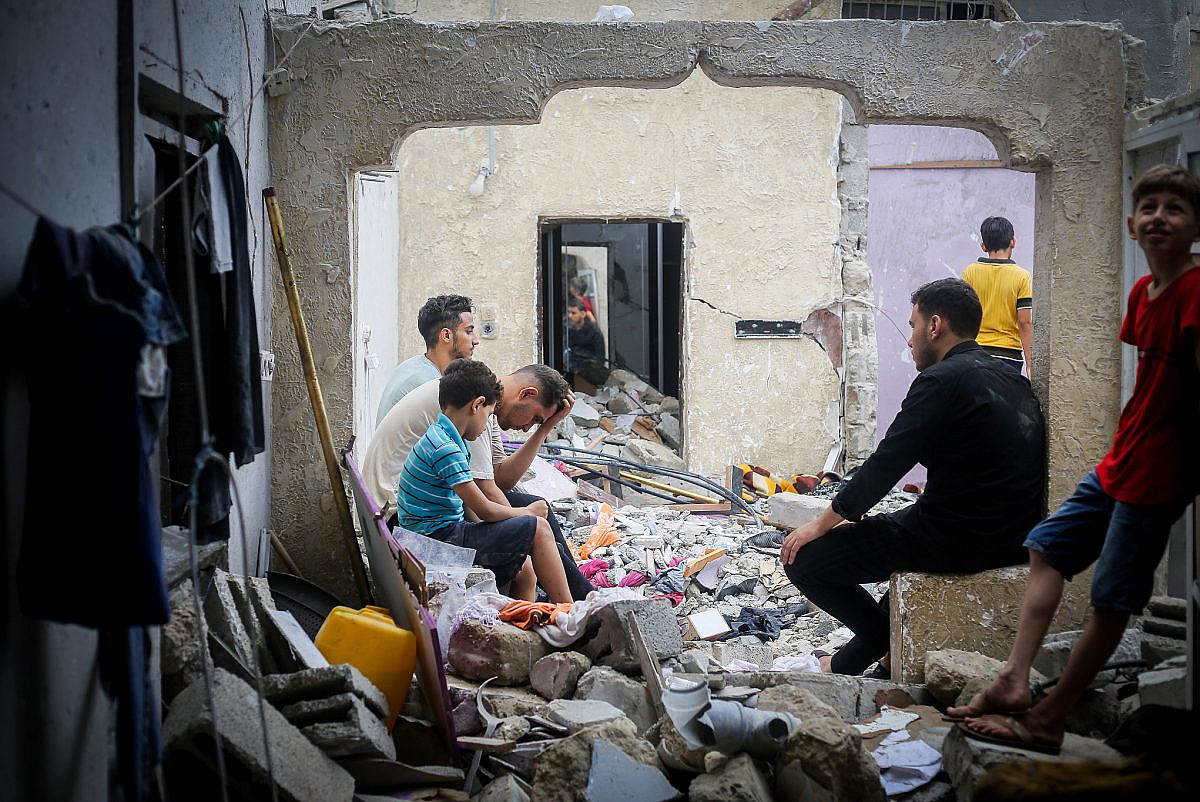Since Oct. 13, when the Israeli army ordered Palestinian residents of northern Gaza to flee to the southern half of the besieged Strip, thousands have taken refuge in the city of Khan Younis — in schools, in the Nasser Hospital, in a makeshift tent city, and in the pre-existing refugee camp. But even in the south, the Israeli bombardment never stopped, and given the extreme overcrowding, the risk of casualties from airstrikes is especially high.
I lived in the Khan Younis camp for eight years as a young girl, surrounded by Israeli soldiers and tanks. Though I did not meet them face to face, I could hear their bullets and smell their tear gas. I hated the sound of the bombs so much. We did not leave the house much because the occupation forces would often shoot at random; once they wounded my 2-year-old cousin in his foot. Yet people in the camp were warm and loving, and I still have many friends there. We shared everything, and I went often with my grandmother to weddings in the camp.
My family and I left the camp in 2000, at the beginning of the Second Intifada, because Israeli bulldozers demolished our home. I loved that house so much; I had spent many beautiful days there with my grandmother, who died before it was destroyed. Despite leaving, my heart remained in love with the house and the camp, and my return visits never stopped. My sister got married in the camp and made her home there, giving birth to two children, Adam and Rital. When I visit her and the children, I remember my own childhood in the camp.
“I hope the war will end so I can visit the mall, the market, the restaurant, and the amusement park,” Rital, now 4 years old, told me during one of our family phone calls in recent weeks. She asked me and her mother to pray for her to “grow up, get a job, and go to work.” This camp is full of dreams, yet my nightmares around my family and all of the camp’s residents are constant.
‘The occupation does not care about the lives of civilians’
Established after the Nakba of 1948, Khan Younis refugee camp provided shelter for Palestinian refugees mostly from the cities of Bir al-Saba (Be’er Sheva) and Jaffa, and the village of Al-Majdal in what is now Ashkelon. Anyone who has lived in the camp will tell you about the strong ties they all share due to the common experience of displacement in 1948. They carry the same suffering and pain, and are linked through family bonds. Nakba survivors pass on their stories to their children and grandchildren, and everyone attends the annual Nakba Day activities to commemorate their exile.

Before the war, the camp’s population was around 90,000, the majority of whom already depended on food aid and economic assistance from the UN Relief and Works Agency (UNRWA). This aid was coordinated through UNRWA’s 25 facilities in the camp, including 16 school buildings and two food distribution centers covering the eastern and western parts of the camp. With thousands more displaced Palestinians flooding into the camp since Oct. 7, however, the strain on its already meager resources is now exponentially greater.
Marwa Harb, 30, arrived in the camp with her husband and four children after fleeing their home in the north of the Strip. “The place is overcrowded with people,” she said. “I was imagining missiles falling around me, and I was afraid for my children so I tried to keep them close to me. My husband reassured me that the camp would not be bombed, but I cannot be reassured because the [Israeli] occupation does not care about the lives of civilians.”
But Israel did bomb the camp, including a major bombardment of the Abu Shamala family’s residence a week and a half ago that reportedly killed 22 people and wounded over 100 more. The home, which was totally torn to the ground, stood less than one meter from dozens of others, meaning there were casualties from more than one family.
“I was sitting with my children, feeding them and talking to them, when suddenly heavy missiles fell,” Harb recalled. “The place was all smoke and dust, and the children were screaming. I did not see anything around me except that I hugged my children so that no harm would come to them.

“My husband was outside and came in screaming that our neighbors, the Abu Shamala family, were being targeted,” she continued. “Their house is only a few meters away from ours, on the street opposite us. We felt very sad for our neighbors. In the camp, we all know each other well and we have continuous social solidarity.”
‘We will not leave the camp except to our land’
Fadi Tanira, 34, has also been sheltering in the camp since the war began. “The Israeli occupation was not truthful when it said that the southern Gaza Strip is safe for the displaced people and civilians,” he said. “We have not felt safe since the beginning of the war. There are tens of thousands of citizens in the camp here, all of whom go out to the market looking for bread, water, and basic supplies. But I cannot leave my house to go anywhere without fearing that my family will be bombed. I cannot believe that the occupation is bombing a crowded camp like this.
“Last Friday, I went out with my children and I wanted to buy something for them,” Tanira continued. “The children feel bored trapped inside the house, and are afraid of the sounds of the bombing. When we were nearly back at our front door, a strong explosion hit the house next to us, belonging to the Al-Satri family. Three people were killed and dozens of neighbors were injured.
“I heard my wife screaming as she came down, looking for our children,” he went on. “I tried to scream to reassure her that they were okay, but she did not hear. The voices of people screaming to save the neighbors made us lose communication with each other. These were very terrifying moments. Targeting the camp in this way is disturbing.”

Amira Mukhaimer, 55, was already a resident of the camp before the war broke out. “I cannot live outside the camp,” she says. “My house was destroyed by Israeli bulldozers in 2000, but I could not leave. I placed a tent on the rubble until another house was built for me. I feel that the camp is a vital place where I can get what I want from medical services, shopping, and schools for my children. I do not need a car to transport me in the camp. I can walk to reach what I need.
“The occupation’s attacks on the camp have not stopped since it occupied our land,” she continued, referring to the Nakba of 1948. “We witnessed displacement and deportation. They destroyed our homes. We ran in the middle of the night to search for a safe place. When [Israel] left Gaza [in the “disengagement” of 2005], it returned to it with wars every year and bombardments from the sea toward the city. Yet we do not want to abandon the camp; we will not leave it except to our land [from which we were displaced].”

